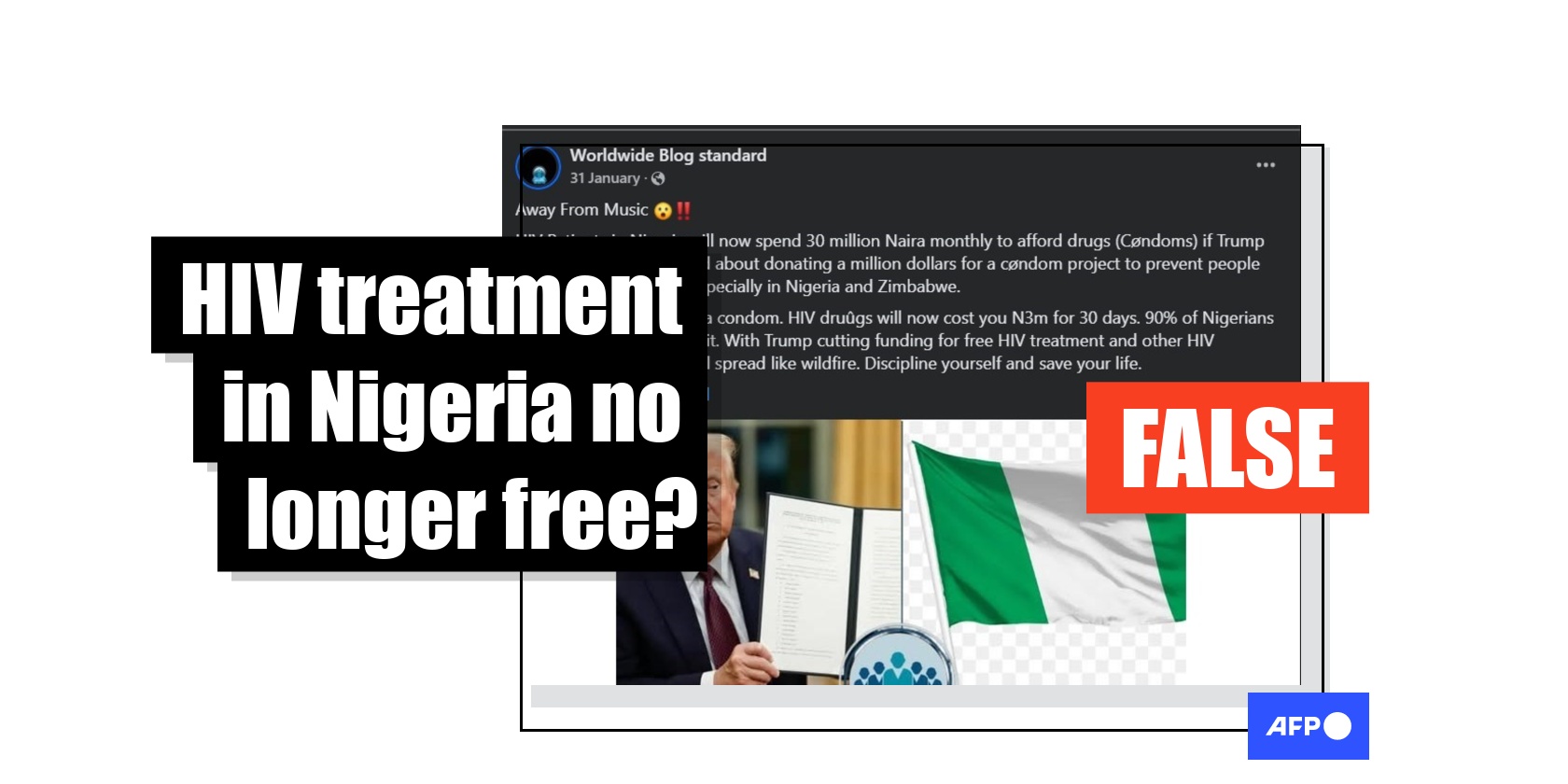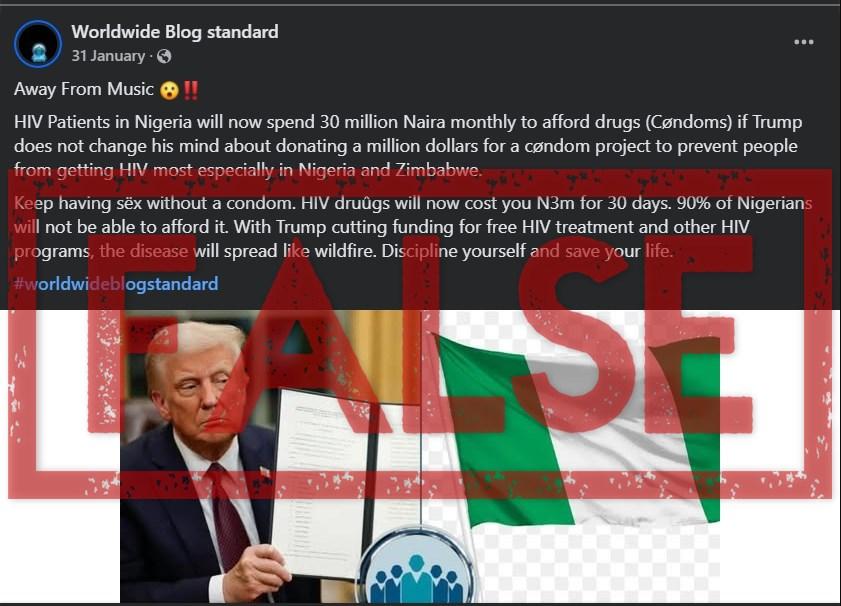
Posts falsely claim HIV treatments are no longer free in Nigeria
- Published on March 26, 2025 at 12:21
- 3 min read
- By Oluseyi AWOJULUGBE, AFP Nigeria
A post shared on Facebook in Nigeria claims that HIV medication “will now cost you N3m for 30 days”, meaning “90% of Nigerians will not be able to afford it”.
“With Trump cutting funding for free HIV treatment and other HIV programs, the disease will spread like wildfire (sic),” the post adds.
At current exchange rates, three million naira equates to about $1,970.

The post has been shared more than 200 times since it was first published on January 31, 2025.
A similar claim about the cessation of free HIV/AIDS treatment surfaced in Cameroon this month. AFP Fact Check debunked the claim in French.
US Secretary of State Marco Rubio issued an internal memo days after Trump assumed office, vowing an “America First” policy of tightly restricting foreign aid (archived here).
To justify the freeze, Rubio said the new administration could not assess whether existing foreign aid commitments “are not duplicated, are effective and are consistent with President Trump’s foreign policy”.
Following a global outcry, the US State Department announced a waiver for “life-saving humanitarian assistance.” The exemption includes PEPFAR, which is the programme created to achieve HIV epidemic control, suggesting that at least some of the lifeline funding should not be affected (archived here).
Despite potential funding gaps, the claim that HIV/AIDS treatment is no longer free in Nigeria is false.
Still free
“The government, in collaboration with donor partners, remains steadfast in providing free and accessible HIV treatment to all who need it,” reads a statement issued by NACA on February 27, 2025.
NACA said reports that patients would have to pay for HIV treatment are “false and misleading” (archived here).
Antiretroviral medicines (ARVs) reduce the risk of transmitting HIV by preventing the virus from replicating in the body, destroying the immune system and progressing to AIDS (archived here).
These drugs are not a cure for HIV, as there is currently no cure, but they allow HIV carriers to live long and healthy lives, provided the medication is taken regularly.
Nicholas Ugbenyen, national secretary of the Network of People Living with HIV and AIDS in Nigeria (NEPWHAN), confirmed that people within their support groups still receive medication free of charge.
“It is not true that patients are now paying," Ugbenyen told AFP Fact Check on March 25, 2025.
Nigeria is Africa’s most populous country, with a population exceeding 227 million at the end of 2023, according to the World Health Organization (archived here).
The Joint United Nations Programme on HIV/AIDS (UNAIDS) estimates that 1.9 million adults aged 15 and older were living with the disease in Nigeria in 2023 (archived here).
NACA reported 1,400 new infections a week in 2023 (archived here).
Exaggerated cost of ARVs
A memo from the US State Department shows that Nigeria’s budget for 2024 and 2025 under PEPFAR is $782 million.
However, the US embassy in South Africa said only activities covered by the State Department’s limited waiver will resume (archived here).
The Nigerian government confirmed an increase in its allocation to the health sector to cover anticipated shortfalls (archived here).
Since the US announcement, Nigeria’s federal executive council approved two tranches of N4.8 billion ($3.1 million) and N997 million ($655,000) for HIV/AIDS treatment (archived here and here).
Health Minister Ali Pate said the interventions will ensure that there is no disruption for patients supported by health programmes.
“We appreciate the U.S. government’s contributions over the years and remain committed to a constructive partnership while strengthening Nigeria’s healthcare system with domestic resources,” he said.
AFP Fact Check has debunked various claims about Trump’s second presidency and Nigeria here.
Copyright © AFP 2017-2026. Any commercial use of this content requires a subscription. Click here to find out more.
Is there content that you would like AFP to fact-check? Get in touch.
Contact us
